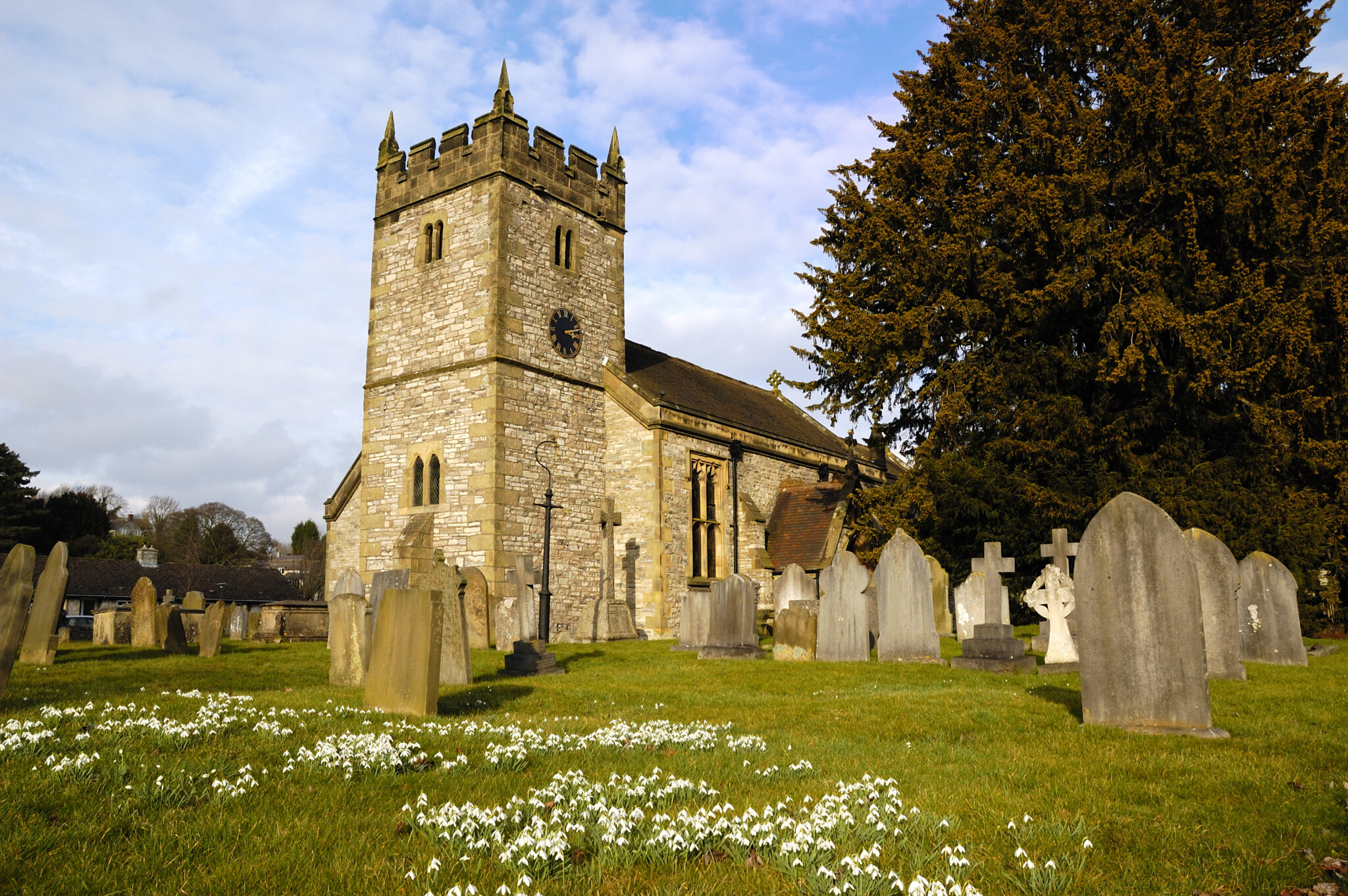One of the most controversial dividing lines in contemporary political discourse is that which is found between those who endorse the concept of “multiculturalism” as a fundamentally positive and even virtuous proposition, and those who reject such a concept as unworkable or even immoral. One can hardly deny the significant demographic and cultural changes which have taken place in the United Kingdom over the last few decades, which have brought with it an increasingly public display of Islam in our political arena and civil society. The fraught debate over the value of multiculturalism has been waged by the Left, aided by the assertion of a central guiding principle that anyone who opposes such demographic changes is committing sacrilege. In other words, it has become a moral imperative that English men and women accept the growing presence, and often preference, of foreign cultures in this country, and that the English have no natural right to their own culture, heritage, or traditions which necessarily become diluted and obscured in the presence of many others.
This assumption has been used to clobber those of us who have raised objections to what we deem to be the damaging impacts of multiculturalism in the land which has been our home for centuries. We have been made to feel that our uneasiness with this kind of cultural upheaval is a deep moral flaw and reflective of our own backwardness and nastiness. Consequently, the globalist Left have succeeded in advancing their imperialist political project and shaming ordinary people into silence out of fear of being labelled “bigoted” or “racist”. I resoundingly reject the assertion that one must, out of moral duty, accept the premise of multiculturalism and all its impacts, and this article seeks to put to paper what I suspect is the view of many ordinary and reasonable men and women who are tired of being gaslit by the political establishment into surrendering their natural right to their own history and heritage in their own homeland.
Enjoy independent, ad-free journalism - delivered to your inbox each week
It is quite hard to dispute the fact that England is becoming more Islamic. In the first quarter of the 20th century, there were approximately 10,000 muslims in Britain; in 2021 the census of England and Wales found that this had increased to 3.9 million, growing by 1.2 million in the time between 2011 and 2021 alone. US Pew Research Centre has also projected that the muslim population of the United Kingdom could rise to almost 17% of the population by 2050 under a “medium migration scenario”. In 2017, data indicated that there were 1,825 mosques in the UK, and in recent years the public amplification of the call to prayer has grown in frequency in English cities from London, to Birmingham, to Stockton-on-Tees and beyond. Four independent candidates recently won election to the UK parliament by rallying the Islamic vote and running on a pro-Gaza platform, one even declaring upon victory that: “this is for Gaza”. The top boy’s name in the UK in 2023 was “Muhammed” for the first time, and a 2018 independent review into the application of Sharia Law in England and Wales estimated that there were between 30 and 85 “sharia councils” in England and Wales, though it conceded that the exact number was unknown.
The past few years have also highlighted some of the horrendous social consequences of mass migration. The grooming gang scandal—one of the worst sustained instances of atrocious sexual violence in our history—is a horrific example of how men, many of whom were Pakistani muslims, abused and raped innocent working-class, English girls. The scale of this abuse is almost unfathomable, and estimates of the number of victims vary, but one Labour MP claimed that there could be up to 1 million. Horrifically, such abuse has been covered up by the establishment and the impact of these horrendous crimes downplayed or ignored. Furthermore, the infamous case of the Batley Grammar School teacher, hounded out of his job and forced into hiding in 2021 because some muslims took issue with his showing an image of Muhammad in his classroom, is another example of the upheaval that has been brought when a foreign culture has clashed with the British commitment to freedom of speech. Subsequent reporting into this case found that: “There was a disproportionate concern for not causing offence to the religious sensibilities of those who, unaware of the facts, chose to engage in intimidation and harassment.”
In all of this I wish to make something clear from the outset. Despite the very real consequences of this multicultural experiment—some of which have constituted truly awful crimes—my argument does not rest on any kind of necessary inference that Islam or its followers are “intrinsically evil”. This is patently nonsense. Many muslims have contributed tremendously to this country and wish no ill-will on our people. Part of the strategy of the Left has been to equate opposition to Islam and its impact on culture with opposition to individual muslims, and as such they have shamed those who have reservations about the impact of public Islam as “racists,” silencing and dismissing them. What I am arguing for requires no assertion that Islam is intrinsically bad; I am not making, here, a pointedly moral argument, but rather claiming that Islam and its cultural influence on the UK marks a major and decisive departure from the narrative and heritage which has formed us and this nation. Therefore, it is perfectly reasonable, out of a desire to preserve what is historically and culturally English, to oppose the Islamification of the UK which has simply been allowed to occur by our political class over the last few decades, alongside the upheaval such levels of migration and the imposition of multiculturalism has brought.
What I am arguing for requires no assertion that Islam is intrinsically bad; I am not making, here, a pointedly moral argument, but rather claiming that Islam and its cultural influence on the UK marks a major and decisive departure from the narrative and heritage which has formed us and this nation.
Shortly after the Labour Party won the election in 2024, the Vice-President of the United States made a witty and rather insightful remark that the UK could be the first “truly Islamist country” to have nuclear weapons. In making such a statement, he was alluding to the obvious demographic changes that have taken place here, as well as the influence which political Islam exerts over the Left in the UK. However, while I agree with the inference he was making, the idea of “Islamic England” is, in my view, an oxymoron. It is simply not possible for England to become Islamic for if this country ever did embrace a totalising Islamic aesthetic and political disposition, then she would cease to be, in any real sense, England. This is because, Islam represents a fundamentally different narrative and heritage from that which defines the history and story of England, and to depart from such things would necessarily mean a fundamental and radical transformation.
I use “radical” here in the true sense of the word, deriving from the Latin noun radix, meaning “root”. The roots of this country are fundamentally Christian; the very fabric of Britain testifies to this truth through its many thousands of quintessential parish churches and mighty cathedrals which blanket the country. The music of church bells has sung in our skies for centuries. Our oldest universities speak to the Christian foundation of British intellectual pioneering through their college namesakes and time-endured rituals. Sittings in our Houses of Parliament still begin with prayers to God (for now), and our national Church remains entwined within our political system: the Crown as its head and its bishops with seats in Westminster. To become Islamic would be to tear up these roots and thereby destroy the tree, not because Islam is necessarily inherently destructive, but simply because it is incongruous with the particular narrative which has been the soil of our history.

If England embraced Islamism, it would cease to be England—its story and spirit are rooted in a wholly different heritage.
Stories are the medium through which we make sense of the world. We use stories to understand reality, to educate our children, and they shape how we think and act. This is precisely why the fairytales or the biblical texts have such significance, because they have taught us how to understand the world and given us as a people a common language and framework. This common framework makes itself known in all of our lives, regardless of our personal confession of faith. Simple things like saying “bless you” after someone sneezes or our calendar system and the way we count our years are founded upon the Christian worldview. Naturally, when a particular people share a common story it becomes worked out in the public square. It will inevitably inform our rituals, public performances, symbols, and behaviours, and thus this shared narrative is crucial for the continued unity of a people.
It is the Christian story and the Christian narrative which has shaped us and our nation as a homeland. In our national mythology stories like Arthur and the Holy Grail, or Joseph of Arimathea and the founding of Glastonbury Abbey illustrate the interweaving of Christianity with Britain’s mythical formation. Our history is peppered with saints like Columba or Aidan who brought Christianity to the wild northern parts of these Islands and whose memory is enshrined in particular places like Iona or Lindisfarne. Poets like Shakespeare, Milton, Coleridge, and so many others have typified our rich literary tradition and have consistently drawn from the stories of redemption, sacrifice, and resurrection which run through the Christian meta-narrative. Our constitution and system of laws have emerged from a history premised on the Christian religion and consequently informed our views on the dignity of man and the value of free speech and thought. It was our Christian heritage upon which abolitionists drew to win the political argument over slavery, and it was Christian scientists, motivated by a desire to know the handiwork of God, who contributed to the birth of modern science.
The purchase of this story on England’s history really can’t be overstated and it can also be seen in her aesthetics. The parish Churches, often built in the centre of our towns and villages, show the centrality of worship for community and public life; the sound of Church bells still draws our senses back to this very fact. As a result, I feel completely justified in preferring the sound of church bells to the sound of an Islamic call to prayer, because the English Church bell makes sense in the context of our particular heritage and means something distinct to what the Islamic call to prayer means. The sound of the call the prayer, spoken in a foreign tongue, is an imposition on these islands because it, definitionally, finds its origin in a distinct and contradictory narrative. The public religious music of England has always been church bells, not Arabic chanting, and any replacement or substitution for the latter would represent a break with the common way of English life, and the common story of England which the ringing of church bells represents—“Ring out, wild bells, to the wild sky!”

England’s heritage rings out in church bells, not in the foreign call to prayer—a sound rooted in a different story.
Furthermore, I do not wish to see the replacement of church buildings with mosques and minarets. I do not wish to see projections of Islamic teachings onto public displays in train stations. I do not wish to eat meat consecrated in prayer to a foreign god. Such things contradict the common life of England throughout the ages, and are ornaments of a different story to the one which this country derives from. Thus, my opposition to Islam is not an unmoored hatred, but a rational delight in my country’s heritage. This heritage is what has made all Englishmen the people they are today, and necessarily it has made the country what it is also. To abandon that is to abandon the home we ought to love. To accept Islamification, and multiculturalism, is to be compelled to entertain a plurality of stories. Stories which contradict our own and diminish its knowability, so that we risk forgetting who we are. Surrendering the narrative of England—our culture and traditions—is equivalent to giving up England herself. For those who love their country, this cannot be accepted. Not, again, for the hatred of anything other, but for the love of that which we have inherited.
And this bridges into a wider point about what inheritance actually means. A popular conception of tradition derives from Chesterton who described it as the “democracy of the dead” and argued that tradition gives a vote, of sorts, to our ancestors. In other words, contrary to the assertions of our hyper-liberal, modern society, we are not atomised individuals. We did not arrive at this point in time and space by accident. We truly do stand upon the shoulders of giants, and we only have our way of life because our grandfathers before us determined to build something beautiful and pass it on to those after them. We have a duty, then, to give consideration to what we owe those who came before us. That is not to say we never advance or adapt, that we must accept every aspect of the past unquestioningly, certainly not. However, to embrace a worldview, religion, or culture, that has never been shared by those before us is, at the very least, odd or strange. It is as if we wish to choose new grandparents and spurn the very people who made us who we are. This kind of radical departure from our country’s past is technically possible, but it cannot be called virtuous as the Left wish to make out.
In many ways, this argument is really one about multiculturalism more generally. However, in our current civilisational moment, it happens to be Islam which is garnering a high degree of influence and exerting a significant impact on our shared cultural fabric and social life. It is not unreasonable that ordinary Englishmen are finding it harder and harder to tolerate the abuse committed against our fellow countrymen, or the insistence by communities of foreigners than their notions of blasphemy or “justice” be adopted in our nation. Let me be very clear, I am in no way accusing all migrants or all muslims of such barbarity, on the contrary. However, it is simply a fact that as migration levels have skyrocketed, such crimes have also significantly increased.
Let me be very clear, I am in no way accusing all migrants or all muslims of such barbarity, on the contrary. However, it is simply a fact that as migration levels have skyrocketed, such crimes have also significantly increased.
The Christian character of our nation’s past is our heritage. This character is far from perfect, but it has had a unique influence upon these Islands and ought to be preserved here. To decide now to depart with such a past and allow a cultural shift to the embrace of Islam would disconnect us from the river of history that England flows from. Not, as I have already stressed, because Islam is inherently wrong, but because England owes its existence to something else, something clearly distinct, and we, as Englishmen, have a right to delight in, preserve, and pass on the good gift of culture which has been handed down to us in the form of tradition. No one can be denied this right, and those who would berate you for such love are wholly wrong to do so. No longer should we put up with the accusations that not desiring to live in an Islamic country is somehow immoral. Ordinary people should feel no fear in having a deep love for their heritage and traditions. In doing so we recognise the debt we owe to our forefathers who made our lives possible. Islam represents a foreign and incongruous culture and narrative, not evil, and perhaps well suited to the peoples of other lands. But we have no obligation to accept the loss of our heritage for the imposition of another and those who would force us into accepting such a fate must make the argument for such a radical transformation and not assume it is their manifest right to carry out their political project. You are well within your rights to love England. You do not have to hate anything else, but you have a natural and reasonable right to see your heritage preserved, and it is high time ordinary and reasonable people were allowed to say this again.




Comments (0)
Only supporting or founding members can comment on our articles.